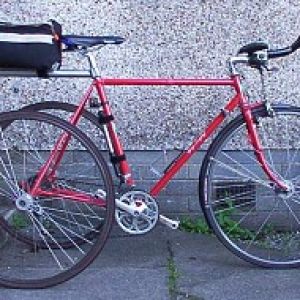St. Kilda.
Although it is four years since the Clydesdale Bank introduced this five pound note, with its picture of the residents of Hirta, the main island of St. Kilda, I only recently noticed their existence. I first heard of St. Kilda almost exactly fifty years ago when a friend of mine went there for his summer holiday, joining a working party to help restore the cottages in Village. It captured my imagination and ever since then I have had an interest in the place and its culture.
Little is known of the history of the community, even though it is thought to have survived for over two thousand years until the evacuation on the 29th August, 1930. Living just within sight of Skye, eighty miles away, life was hard, but the isolation meant that, for most of the time, the people avoided many of the problems of mainland life: wars, epidemics, the Highland clearances and crime. When the red coats searched the island for Bonny Prince Charlie after the ‘45, they found that the residents had not heard either of the prince or of the king.
Although the land could support a population of around two hundred, by the eighteenth century tourists were bringing in diseases such as tetanus, the common cold, cholera and smallpox. Unhygienic midwifery practices meant that many neonates died of the tetanus, the common cold laid the whole community low and unable to work for weeks after each boat visit, and cholera and smallpox were, obviously, devastating.
Food was hard won; a major part of the diet was fulmar and puffin; a year's supply being caught, when in season, by clambering over four hundred metre high cliffs which was never going to be a safe occupation. The bones of the birds were burnt to make fertiliser for the meagre crops, the process slowly poisoning the soil with lead, while over zealous priests ensured that lengthy and frequent prayers seriously eroded the hours available for work. By 1930, with their number down to an unsustainable thirty six, the villagers were too few to cope with the vagaries of health and harvest and were forced to ask to be re-homed. On the morning they left, the weather was wonderful, showing their homeland at its best; their departure would have been so much easier to bear had it been otherwise.
- 0
- 0
- Olympus E-PL3
- 1/2
- f/22.0
- 26mm
- 200

Comments
Sign in or get an account to comment.


